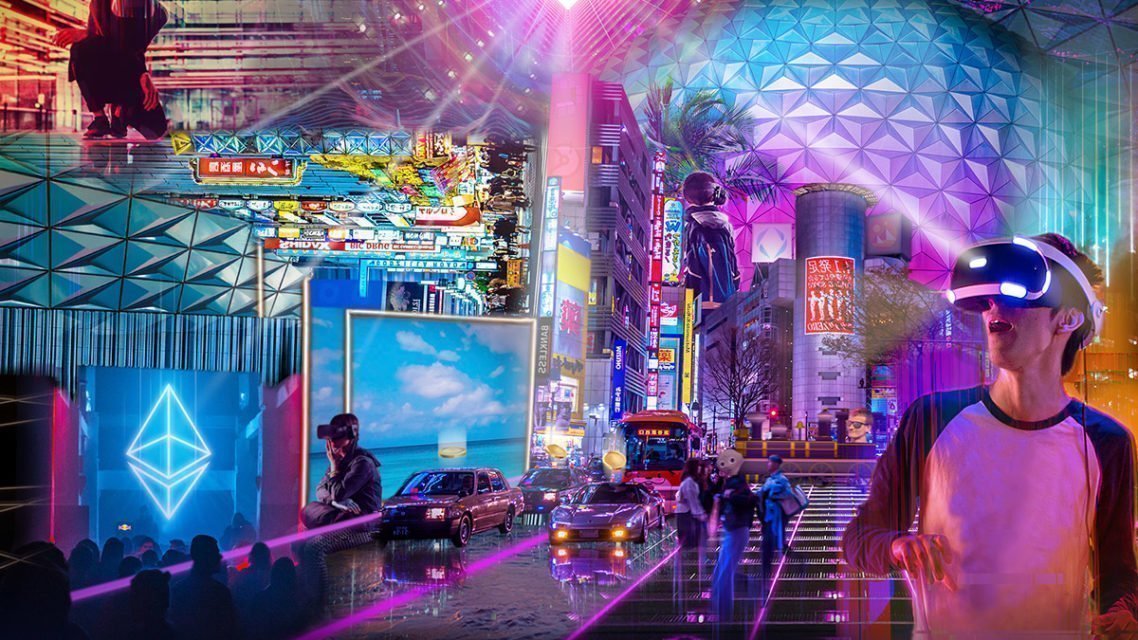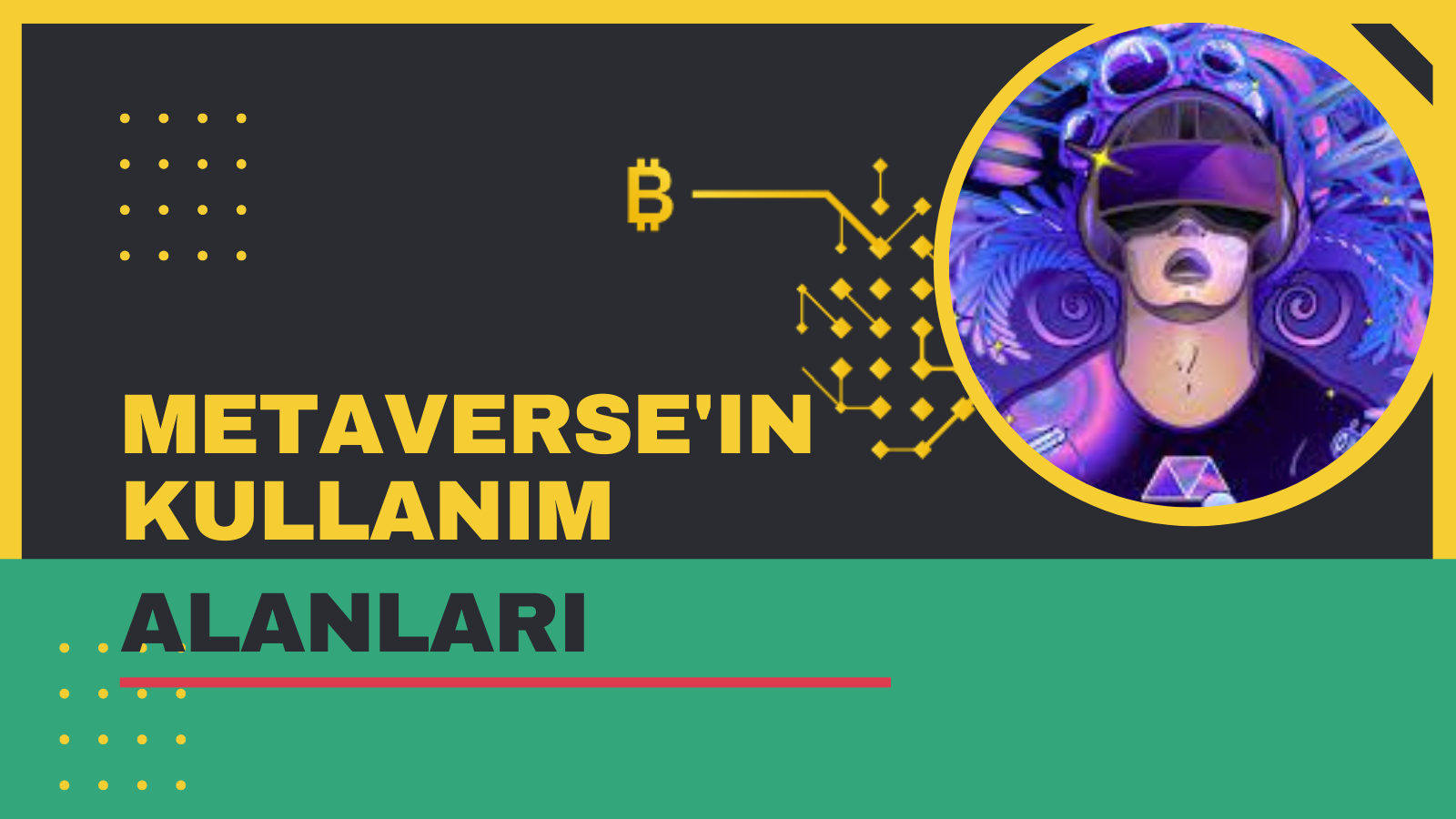The Metaverse is changing the rules of business at a speed few could have imagined: New applications and projects related to the Metaverse are now emerging, influencing and transforming the idea of sales, marketing, technological innovation, and business operations.
Imagine a human thousands of kilometers away, sitting next to you on a sofa with a hologram avatar, interacting and talking to you in real time; or a user browsing products in a store located on another continent and touching, feeling and using before purchasing.
Metaverse is the future of human connections, the next version of the internet and digital platforms that are causing worldwide ripples. Currently, marriages are conducted within a metaverse, companies are spending billions of dollars to own a slice of this next technological wave, and new games, entertainment concepts and hardware are being released to support and inspire the use of the metaverse.
What is Metaverse?
In very simple terms, the metaverse can be defined as a set of interconnected, intuitive and immersive experiences: the convergence of physical, augmented and virtual reality in a shared online space.
The first instance of the Metaverse is found in a 1992 science fiction novel called Snow Crash; where meta and universe merge to form a metaverse, where the characters lead an alternate life.
In fact, the concept and ideology behind the metaverse has since been used mainly through movies and games. For example, one theory states that there is a fundamental metaverse that drives popular games like Roblox, Minecraft, and Fortnite, where players gather in 2D environments and interact and play with each other.
Second Life is another very good example of a metaverse-based social and gaming platform that is actually 20 years old!
Some of the biggest tech companies like Apple, Sony, Facebook, Google, Microsoft and others are spending billions of dollars to create the next version of the internet by joining forces of AR/VR headsets, smartphones, personal computers. And it enables cloud-connected servers and meeting, interacting and conducting business in a virtual environment or a metaverse to provide an immersive experience to end users.
Three main features of a Metaverse
An entity can be described as a metaverse when it fulfills three properties:
- Its physical and virtual worlds A 360-degree digital environment
- that combines a digital environment with a full-fledged economy for handling financial transactions
- and interoperability: the ability and functionality to seamlessly move from one metaverse to another.
This also demonstrates the democratic nature of the metaverse: It is not an asset or technology that can be owned by a single organization, but will be collectively created, managed and optimized by several organizations in a decentralized manner.
This is why the possible business applications of the Metaverse are so exciting and full of never-before-seen possibilities.
How to Enter Metaverse?
Currently, a metaverse can only be accessed through VR or AR headsets, but the platform on which it can be accessed consists of smartphones, laptops, PCs, game consoles or tablets.
Very soon, newer hardware innovations may be introduced, where a metaverse can also be accessed via smart glasses.
One point that is pretty clear about the scope and possibilities of a metaverse, however: there will be a virtual, digital world that will fit and parallel our real life. Imagine a virtual world that mimics our real homes, offices, shopping malls, highways, organizations and more.
Fascinatingly, the metaverse will overlap the physical and virtual worlds, creating an entirely new universe: People are already spending millions to buy a piece of land in the metaverse, and some countries are even planning to open embassies in the metaverse!

Uses of the Metaverse
Now, let’s dive straight into the subject and when it comes to the metaverse it’s real, Let’s explore the unprecedented possibilities of practical and powerful business applications.
1. Enhanced Social Media Experience
“Embodied Internet” is the term used by Mark Zuckerberg, founder of Meta (formerly Facebook), in his letter to shareholders in October 2021. Social Media will become exactly that when the Metaverse goes mainstream.
Currently Facebook, Instagram, Whatsapp etc. current social media platforms are 2D platforms where users see only one screen and the content displayed there. Interaction is limited to ‘like’, ‘comment’ or ‘share’ and will change radically when the metaverse kicks in.
With AR and VR supported metaverse, social media will become immersive with real-time interactions and meetings, just like in the real world. Instead of just a screen to connect to, social media will replicate the real world, where people, or rather users’ avatars, will interact, communicate and engage in a three-dimensional world, just as social media does in the real world.
2. Business Communications and Optimized Productivity
Metaverse will launch a revolution in business communications and productivity with never-before-seen innovations and breakthroughs. Currently, the most popular business communication channels such as Zoom, Microsoft Teams and Google Meet provide 2D communication mode via video and audio.
Just like a real-life business meeting, these will be a thing of the past with the metaverse where hologram-based real-time communication will be enabled. For example, a full-blown hologram of a person will sit in front of you, interact and communicate with you like a real person. Or let’s say a real estate company will enable a realistic virtual tour of commercial and residential projects, where guests will actually enter the apartment or office, touch and feel the components and experience the space and dimensions like a real visit.
This has tremendous implications in industries such as manufacturing, wholesale, real estate, corporate meetings and more. Even working from home will witness a change of perspective in terms of communication and productivity, as meetings and seminars will become realistic, real-time and very similar to real, face-to-face communication.
3. Immersive Sales and Marketing
With advanced social media and optimized business communication, the entire sales and marketing process will witness an incredible transformation that will accelerate business growth in every way.
Imagine virtual billboards and billboards on virtual highways and highways seen in real time by millions of users or avatars, and businesses are really spending money to get rights to these advertising spaces! This is no longer a fiction, as investors actually buy metaverse real estate and leverage their virtual assets to make money.
The creation, distribution and consumption of marketing content will be changed forever with the metaverse. With so many data points already available for online users or avatars in a metaverse, brands will be in a better position to market their products in a customized, personalized way with captivating results. The targeting and positioning of products and services will be so accurate that every metaverse user will experience marketing campaigns based on their particular preferences and choices.
Brands can set up their own metaverse stores and invite users from all over the world to virtually visit and experience products and services in real time with options to virtually use, control and feel through ultra.
4. Revolutionary Online Education
The pandemic has forced online education to mainstream, but the current environment of asynchronous teaching mode via video conferencing platforms is not that user-friendly and productive.
Metaverse will change that.
With Metaverse, students can now create their own digital avatars and attend classes like in the real world, learning and learning from teachers with stunning clarity and depth. Metaverse will unleash an immersive learning experience fueled by graphics-intensive virtual platforms and digital platforms to engage, collaborate and interact with classmates in real time, but also to practically learn concepts and understand theories, perhaps on few levels that are truly better. life.
With immersive learning tools, visualized learning aids, and one-click access to top professors and teachers, online education will revolutionize the metaverse.
5. Futuristic Blockchain Applications
Since both have the same underlying technology for creating blocks, it becomes a fascinating case study of how blockchain can complement and empower metadata.
Blockchain is the technology that creates Bitcoin, Ethereum and other digital currencies and also creates NFTs or unique tokens and blockchain games.
These technologies can be the building blocks of a metaverse to develop a practical, scalable and sustainable virtual economy; There is no need to use fiat money like currencies here. A very advanced combination of exchange systems and blockchain-based technologies could actually be the catalyst to expand and power metadata and create a parallel Universe that expands into new horizons forever.
6. The Future of Entertainment
In the coming days, we may witness a new never-before-seen entertainment industry at the heart of the metaverse: virtual concerts attended by millions of avatars, each paying an entry and experiencing live performances. imagine.
Virtual reality theme parks, for example, could be another important application of a metaverse where users from around the world can join, participate and experience unique rides without leaving their homes.
The same goes for sports: Unique competitive sports can be orchestrated within the metaverse with advanced and fair sports betting and more.
These practical and powerful business applications are just the beginning. When a full-fledged, feature-rich, immersive metaverse is truly created, we can witness tons of other business applications such as e-commerce, legal industry, manufacturing, retail, books, movies.
Final Words
The metaverse is still in development and it’s too early to identify metaverse best practices in any particular order or order. As of now, metaverse base technologies are powering new waves of digital transformation in different industries. At the same time, metaverse technologies such as VR, AR, and XR are transforming traditional perspectives on industry best practices and business models.
For example, VR has the potential to transform learning experiences in classrooms and workplaces. On the other hand, many existing applications of the metaverse, such as virtual real estate tours, showcase the growth potential of the metaverse in the future.







